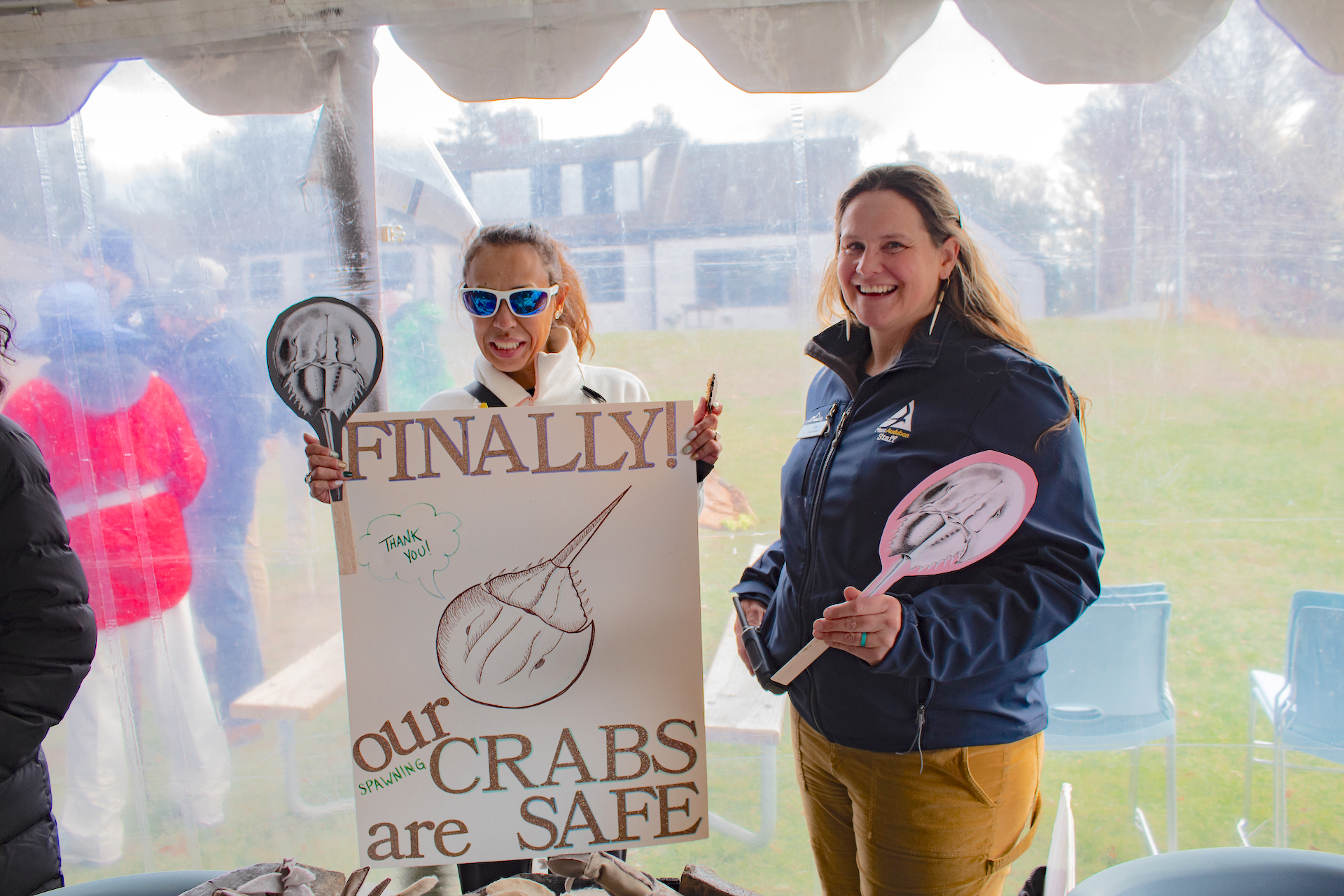On March 19, the Massachusetts Marine Fisheries Advisory Commission (MFAC) voted to ban the harvest of horseshoe crabs during their crucial spring spawning season, when horseshoe crabs come to shore to breed and lay eggs. This critically needed measure could start the Commonwealth’s depleted horseshoe crab populations on the road towards recovery. We’re celebrating a major victory for nature in Massachusetts.
Advocating for Horseshoe Crabs
For decades, Mass Audubon and other advocates have pushed state officials to implement stronger protections for horseshoe crabs. In 2023, the Massachusetts Division of Marine Fisheries (DMF) proposed a ban on harvesting during part of the spring spawning season. But the MFAC—an appointed board that votes on fishing rules in Massachusetts—rejected the ban, despite overwhelming public support.
In 2024, we joined other advocates in urging the DMF to propose even stronger regulations. This time, we called on Mass Audubon’s 160,000 supporters to advocate for the protections—and you delivered. Over 2,600 people submitted written public comments supporting protection for horseshoe crabs, and over 70 attended in-person public hearings.
Fishing regulations don’t often get a lot of attention in Massachusetts, so this huge show of public support made a big impression on the DMF and the MFAC. When it came time to vote on horseshoe crab regulations again, the result was very different. The MFAC voted six-to-one, with one abstention, to approve stronger protections for horseshoe crabs.
This victory proves that when nature advocates unite around a shared cause, our voices can reshape environmental policy.
New Protections for Horseshoe Crabs
The newly passed regulations will ban all horseshoe crab harvesting between April 15 and June 07, the season in which most horseshoe crabs in Massachusetts breed and lay eggs.
Since a single female horseshoe crab can lay up to 80,000 eggs in one season, every crab harvested during this period destroys an enormous number of potential new horseshoe crabs. For most animals, it’s well understood that harvesting during breeding is irresponsible. Ending the unsustainable practice of harvesting spawning horseshoe crabs is an important step towards restoring populations of this amazing species.
Working Towards Abundant Horseshoe Crabs
While the new horseshoe crab protections are a huge step in the right direction, they won’t be enough to restore populations to levels at which migratory shorebirds will be able to once again be able to feed on horseshoe crabs eggs at many beaches along the Massachusetts coast.
Even with a ban on harvesting during spawning, fishermen will still be able to harvest up to 140,000 horseshoe crabs each year to use bait for whelk, a species of shellfish that is itself overfished. And on top of that, 200,000 crabs can still be captured every year to be bled for a compound prized by the biomedical industry. While these biomedical crabs are released, many die after the bleeding process.
To restore horseshoe crab populations to healthy, historic levels, we must ultimately end the harvest of horseshoe crabs for bait, while working to find alternative opportunities for fishermen who depend on this unsustainable practice for income. In the long run, we’re optimistic that synthetic alternatives for horseshoe crab blood will become widely adopted.
Advocating to Protect Coastal Ecosystems
We’re hopeful that these restrictions will make an impact on restoring horseshoe crab populations. But we’ll keep fighting for stronger protections until shorebirds can once again feed on horseshoe crab eggs at beaches all over Massachusetts.
Are you interested in helping us win more big conservation victories in Massachusetts? Sign up to join Climate and Nature Champions, our grassroots advocacy program, and we’ll connect you with more opportunities to speak up for coastal ecosystems, the climate, and wildlife.
Stay Connected with Policy and Advocacy
Learn about opportunities to advocate for our transformative policy agenda



